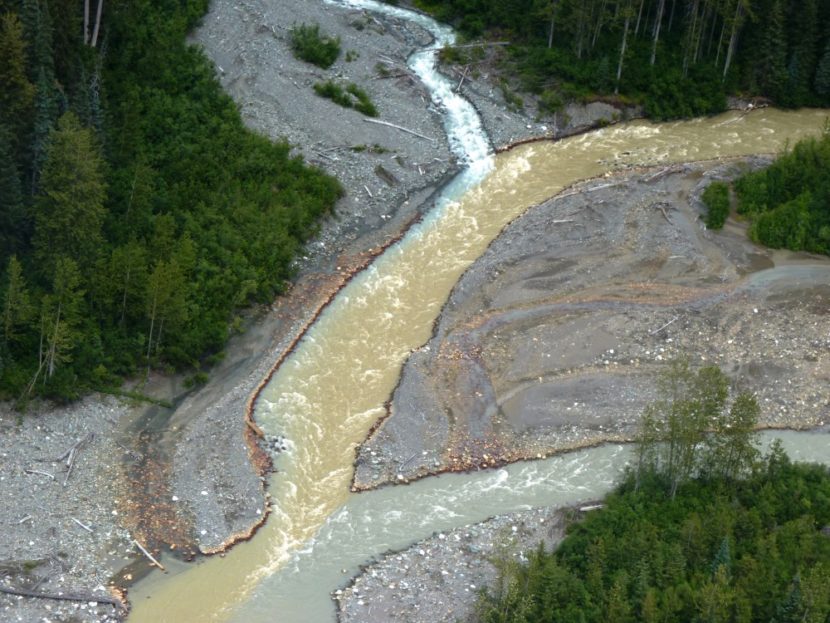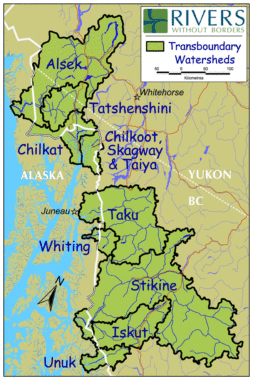
U.S. State Department officials are in Southeast Alaska this week to talk about transboundary mines. The Environmental Protection Agency also has sent representatives.
They’ll visit Ketchikan and Juneau at the invitation of the Central Council of Tlingit and Haida Indian Tribes of Alaska.
Council President Richard Peterson said the officials will meet with tribal governments, Native corporations and state officials.

“They’re basically here to hear and see our concerns with mining activities in the transboundary area of the British Columbia and Yukon … that threaten our boundary waters ecosystem and its four great rivers, which are the Alsek, Taku, Stikine and Unuk,” Peterson said.
The council is among regional and statewide groups worried about the impacts of mines and exploration projects in British Columbia.
They say polluted water could end up in B.C. rivers that flow through Southeast Alaska. That could damage salmon and other fisheries.
The State Department has declined requests to refer the issue to an international commission handling boundary-waters conflicts. The agency instead said it’s a local issue that can be worked out by Alaska and B.C. governments.
Central Council Executive Committee member Rob Sanderson Jr. said he hopes that attitude will change after the meetings. Officials will also fly over the Unuk River, a transboundary waterway north of Ketchikan.
“The biggest thing that I’m hoping for is to bring awareness to the national level and to the international level,” Sanderson said.
In addition to tribal organizations, visiting officials are scheduled to meet with Gov. Bill Walker and Lt. Gov. Byron Mallott. Mallott oversees the state’s transboundary mining efforts.
B.C. mine owners and environmental officials say they are already protecting transboundary rivers.
Note: Mitchell Creek was misidentified as the Unuk River in the description of the top photo in this article. It has been corrected. Also, the description of State Department involvement has been expanded.
